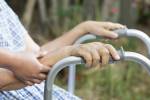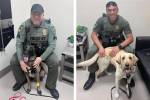Oncology nurses play major role in patients’ recovery
When patients are going through cancer treatment, oncology nurses are some of their main sources of medical contact and comfort. Although nursing can be personally fulfilling, it’s definitely not an easy job. So what makes someone choose it as a professional path?
For nurse practitioner Shannon Southwick of Comprehensive Cancer Centers of Nevada, her career decision was brought on by her sister’s diagnosis of breast cancer at age 30.
“She told me that if it had not been for the nurses who cared for her, she would not have made it through her treatment,” Southwick said. “After hearing that, I knew that I wanted to help others who had been diagnosed.”
When someone has just been diagnosed with cancer, that person and his or her family have a lot to get their mind around. As patients travel through their individual cancer journeys, they usually get to know their nurses pretty well.
“I love helping patients and family members with a difficult diagnosis, such as cancer, and providing the best care possible through their entire treatment process,” Southwick said. “Knowing that I have made a difference gives me such satisfaction.”
For fellow nurse practitioner Shelley S. Miles, also of Comprehensive Cancer Centers of Nevada, ending up in oncology was an accident.
“I was a new grad working at a hospital in Texas and the floor that I was originally hired to work on saw a reduction in census and combined with another floor,” she said. “Since I was the new grad, I did not get the option to stay on the combined floor (we had double the staff we needed).
“The only options were ER or the oncology floor. I chose oncology because they worked three 12-hour shifts, but once I got there, I fell in love with the patients and challenges that come with caring for this patient population. And I have never thought of working anywhere else in my 22-year career.”
“I chose to do my preceptorship in nursing school in the oncology unit at the hospital. It was an amazing experience,” said Cynthia Leach, nursing supervisor for Comprehensive Cancer Centers of Nevada. “Since becoming an oncology nurse, I have traveled through the cancer journey with so many patients and have worked with some incredible medical professionals. I commonly remind my patients that life is truly a journey and not to live through the stories of others, but to write their own.”
A common thread from the nurses was that there is no shortage when it comes to appreciation from patients and their families.
“Patients express their gratitude in many ways — the most common is by food,” Miles said. “During the holidays, the office counters groan from the weight of the goodies we get from patients.”
She also was quick to note that this seems like an odd concept since the nurses spend a lot of their time encouraging patients to eat.
“They also thank us for everything we do, even when they are not feeling the best,” she added.
“Patients express their gratitude through words,” Leach said. “We spend a tremendous amount of time with each of our patients, sharing tears and laughter. I know so much about them, their life stories, their families, their kids and grandkids and special events in their lives.
“We hear about their hopes, their struggles and their fears. You can hear the sincerity in their voice during every conversation. It is gratitude enough knowing we were there to assist with their needs.”
After 19 years in the field, Southwick feels honored to interact with these patients every day. “They are always very grateful for the staff members who care for them and often express their gratitude with personal notes, treats, and homemade gifts,” she said.
At her office, Southwick said there is an uplifting “hope” wall used to display these special gifts and artwork made by patients and family members.
While the nurses are completely focused on patients during their shifts, some misconceptions by the public exist about their exposure to the potentially harmful chemicals used in chemotherapy treatments. According to Miles, every precaution is taken to lessen that chance.
“There is very little actual exposure to the medications themselves. We wear protective gowns and appropriate gloves to protect ourselves and in certain situations even masks and protective eyewear,” Miles said. “The chemotherapy is contained in infusion bags and tubing. Guidelines for reducing exposure are set forth by OSHA, ASCO, ONS (Occupational Safety and Health Administration, American Society of Clinical Oncology and Oncology Nursing Society), and by following these guidelines for safe administration, I don’t really feel there is a risk that outweighs the benefits.”
Southwick concurs: “There is always a risk of exposure to chemotherapy and other drugs we administer, but we take many precautions to decrease that risk.”
Leach said, “We receive extensive training and education regarding the safe handling of the drugs, so I do not feel at risk of exposure. We are provided all necessary protective equipment and remain mindful of any risks when administering treatments.”
Oncology nurses are highly skilled and educated and, in addition, possess unique assessment skills, according to Leach.
“We are effective listeners as well as great communicators,” she said. “Oncology nurses also enjoy teaching. We spend a tremendous amount of time educating our patients, as I feel this is key to helping patients along this journey.
“We are beyond patient. And finally, we are understanding and empathetic.”
Southwick agrees: “An oncology nurse needs to be passionate, compassionate, caring, spiritual and enthusiastic about their work. I often tell student nurses and my children that they should find a career that they absolutely love and are passionate about. Oncology nursing is tough, but it is one of the most rewarding jobs you will ever have.”
“The job is extremely satisfying,” Miles said. “There are good days and bad days, but you always feel appreciated for the work you do by your patients and their families, even when they have to make the hard choice to stop treatment and go on hospice.
“I encourage anyone who is a nurse to think about oncology nursing. It is a very rewarding specialty. In today’s oncology world those good days are starting to outnumber the bad as people are living longer with the disease. You also get to establish relationships with your patients since the care provided can last for years.”






























